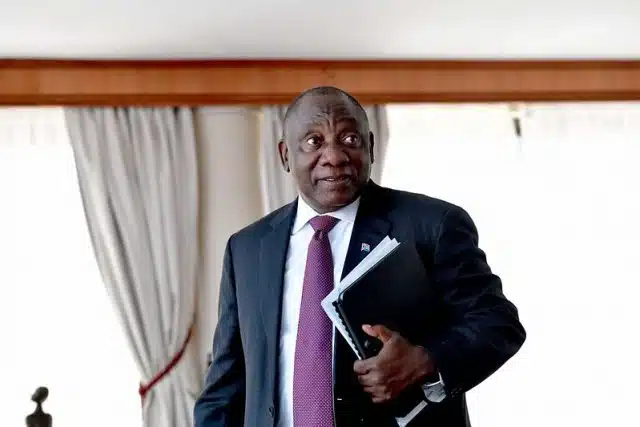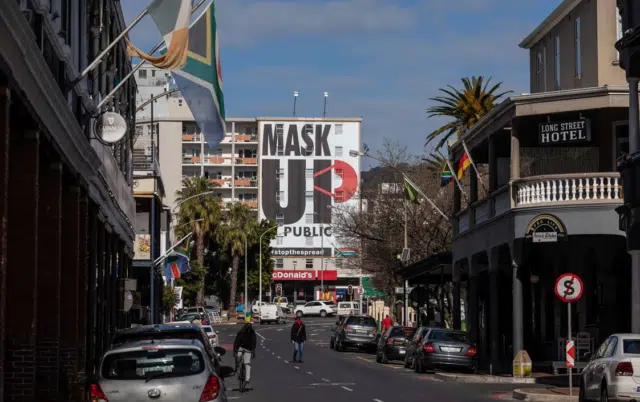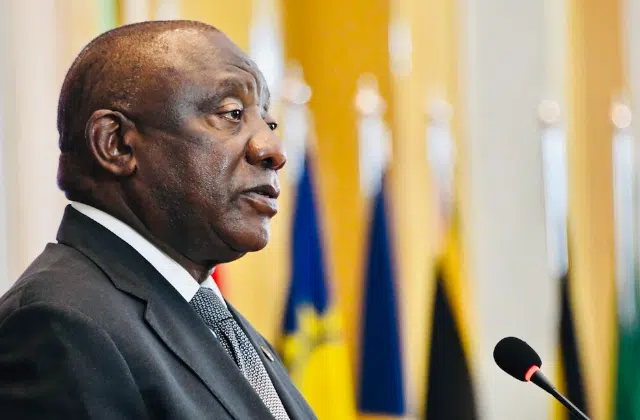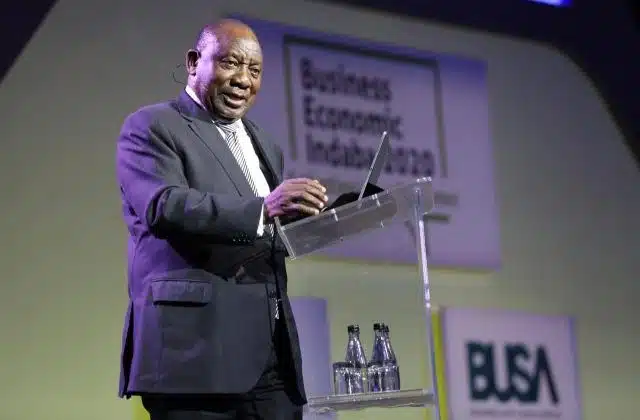
ANC pushing ahead with new state bank in South Africa
The ANC is continuing its push to create a state bank in South Africa.
Speaking at the latest ANC national policy conference, party president Cyril Ramaphosa said that delegates agreed to the formation of a state bank and urged that the process to establish it be accelerated.
Ramaphosa reiterated statements made in his 2020 state of the nation address where he said the government was moving forward with the establishment of a state bank as part of its efforts to extend access to financial services to all South Africans.
Communications and Digital Technologies minister Khumbudzo Ntshavheni, speaking as a party spokesperson at a recent media briefing, said that a state bank would enable the government to rely on interest earned from customers’ deposits to fund transformation interventions in the country.
“Access to capital and access to funding is critical to the diversification of the economy,” said Ntshavheni. “We can not be apologising in terms of the interventions we need to do to transform the sector and raise money for the government.”
She said the ANC proposes for government employees to be paid from the state bank.
The government will not turn either the African Bank or the state-owned Postbank into the country’s state bank, said Ntshavheni.
The minister said that African Bank should remain supported as a commercial bank that can compete freely in the banking sector. She added that it being black-owned makes it unnecessary for the government to turn it into a state bank.
Ntshavheni said that the ANC support for African Bank must make sure it remains commercially viable with the interventions to save the bank, ensuring that there is diversity in the financial sector.
In terms of Postbank, she said that the entity must make its own arrangements in terms of whether it is sustainable and how it distributes social grants, adding that she does not understand why the government should take out its own money to assist it.
Enough is enough
Talk of a state bank has been on the cards since last year, with former minister of finance Tito Mboweni suggesting plans for the central bank to list its stake in African Bank Holdings Ltd.
Mboweni said that African Bank could be used as a building block for a new lender.
Current finance minister Enoch Gondongwana, however, said earlier this year that the creation of a new state bank was not possible as the country lacked the money it needed to back it.
The government-owned Postbank already accepts deposits, and if another lender were to be established, it would have to be self-funded, Godongwana said.
Nationalisation
Alongside proposals for a state bank, ANC delegates have pushed for the nationalisation of the South African Reserve Bank (SARB).
Delegates have called for the process of nationalisation to accelerate as Ramaphosa’s administration has been slow due to the potential implication it could have on the economy.
“Delegates urge the ANC government to find mechanisms to restructure the bank’s ownership in a manner and pace that take account of the likely cost implication for the fiscus,” said Ramaphosa at the conference.
In his closing remarks of the conference, Ramaphosa said that the private ownership of the Reserve Bank is a ‘historic anomaly’ and that the people of South Africa should fully own it.
He said that all necessary alterations to the financial outlook of the country would be done in line with a fiscal policy that ensures the national debt is maintained within sustainable limits.
However, not all delegates were in favour of these proposed changes.
ANC chair Gwede Mantashe said that because the party had so far failed to implement the changes, it should rather move away from some of the ‘ill-considered’ resolutions adopted in 2017 – one being the nationalisation of the bank.
In 2017, the SARB said that the process of changing the ownership structure of the SARB could raise the level of risk and uncertainty for the country in both a financial and economic policy sense.
“This heightened exposure to risk is unwarranted given the country’s fragile economic situation,” it said.
“The SARB functions in the public interest; private shareholders have no influence whatsoever on monetary policy, financial stability, or banking regulation. Policy making and execution is the preserve of the Governor and the Deputy Governors, who are appointed by the President,” said the SARB.
According to the SARB, the central bank has over 800 private shareholders that own a minority of shares with no voting rights on policy decisions.
Read: This new car buying trend in South Africa could spell big trouble



